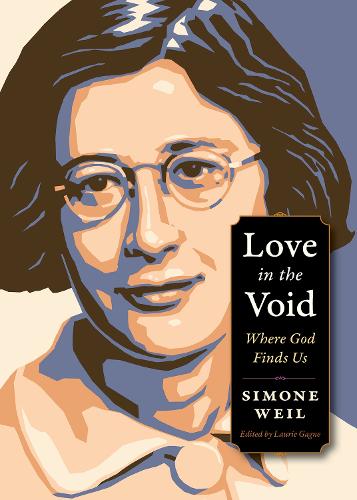
Love in the Void: Where God Finds Us
(Paperback)
Publishing Details
Love in the Void: Where God Finds Us
By (Author) Simone Weil
Plough Publishing House
Plough Publishing House
4th May 2018
United States
Classifications
General
Non Fiction
Mysticism
Christian life and practice
Personal religious testimony and popular inspirational works
Philosophy
194
Physical Properties
Paperback
134
Width 127mm, Height 177mm
Description
Simone Weil, the great mystic and philosopher for our age, shows where anyone can find God. Why is it that Simone Weil, with her short, troubled life and confounding insights into faith and doubt, continues to speak to today's spiritual seekers Was it her social radicalism, which led her to renounce privilege Her ambivalence toward institutio
Reviews
"A brilliant, paradoxical figure.In an age of inspirational books without inspiration, her writing is unmatched for surprising, sometimes shocking, spiritual insight."New York Times
"The only great spirit of our time."Albert Camus
"The most truly spiritual writer of this century."Andr Gide
"This beguiling book is a fine introduction to Weils work."Publishers Weekly
"An excellent introduction to Weils writings and also a valuable guide and stimulus for cultivating a life in which intellectual and spiritual honesty are inseparable, and in which the difficulty of attaining them is seriously confronted. It is ideal for classroom use, for introducing a friend to Weil, or for revisiting her long after an earlier encounter to be reminded why she is such a compelling and challenging interlocutor."Mark Shiffman, Front Porch Republic
"Love in the Void is a reminder to neophytes and the experienced alike that Weils writing is meant to be concrete, accessible, and useful more than simply ideas to ponder, but an invitation to change our lives. Plough has done an admirable job in assembling a condensed version of Weils most pertinent writing. This is Weil burned down to her essentials."Scott Beauchamp
"An exciting encounter with an extraordinary mind."Booklist
Author Bio
Born in 1909 to a Jewish family in Paris, Simone Weil had a privileged childhood. An academic prodigy, she left a teaching career to become a factory worker in order to better feel and know the afflictions of the working class. Though drawn to pacifism, she went to Spain to fight the Nationalists in the Spanish Civil War. An agnostic, her hunger for beauty, virtue, and goodness was fed by her conviction that anyone can enter the kingdom of truth if only he longs for truth and perpetually concentrates all his attention on its attainment. She never conceived of the possibility of a real contact, person to person, here below, between a human being and God until one day Christ himself came down and took possession of me. Though she would remain religiously unaffiliated her entire life, the reality of this experience never left her. Simone Weil fled France when the Nazis invaded and joined the French resistance in London. In solidarity, she committed to eating the same rations as the men at the front. During the summer of 1943, she contracted tuberculosis and, weakened by malnourishment, she died within weeks.
